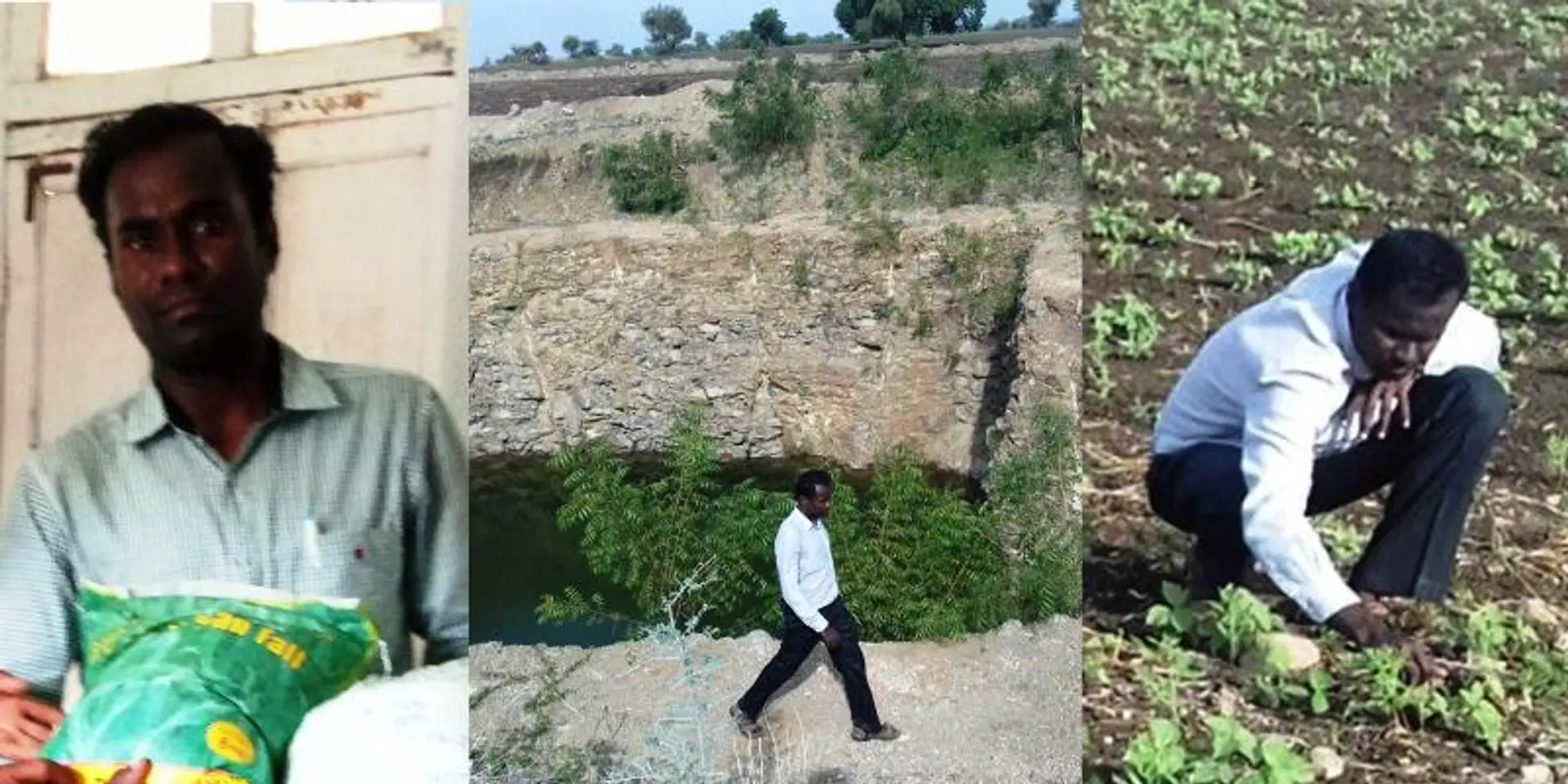This software engineer travels 700 km to do organic farming in his village
Mahesh started farming on the day of Ugadi last year. He wants to make his farm self-dependent and his ultimate goal is to make all farmers resume natural farming practices.
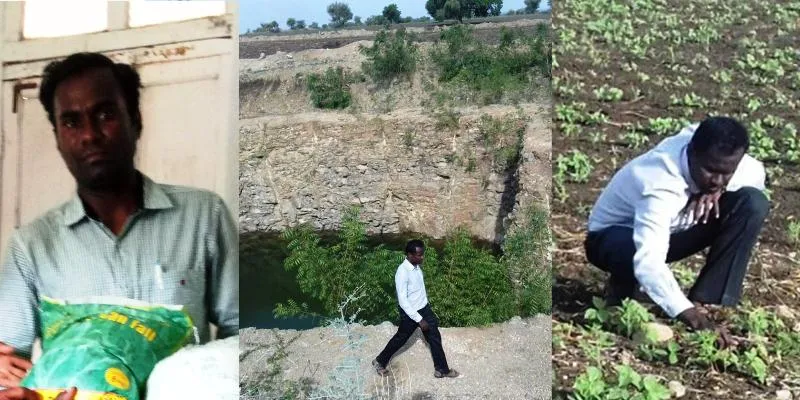
A bold move: Road less trodden
Mahesh Kavalaga (32) has a full-time job at Cognizant Technologies in Bengaluru. Despite his well-paying job, he travels every weekend to his villageKawalaga in Gulbarga district of Karnataka. He starts his journey on Friday, does farming for two days and returns back to Bengaluru on Sunday night.
After his primary education at his village, Mahesh shifted to Gulbarga for higher education. He completed his BTech in IT engineering from PDA College of Engineering, Kalaburagi, in 2007 and got placed in a software company.
In 2016, Mahesh started farming on the day of Ugadi in the month of April. To be on the safe side, he did not leave his job. Also, he needed money for the infrastructural needs ofthe farm such as a pond, warehouse, and a cowshed.
Speaking about his bold move, he says, “In my village,the soil has been ruined badly owing to years of scientific farming practices and thewell-being of people is dwindling. So, I decided to take initiative and start doing something on my own,” says Mahesh. This initiative is also helping him restore his ancestral 40-acre farm in his village.
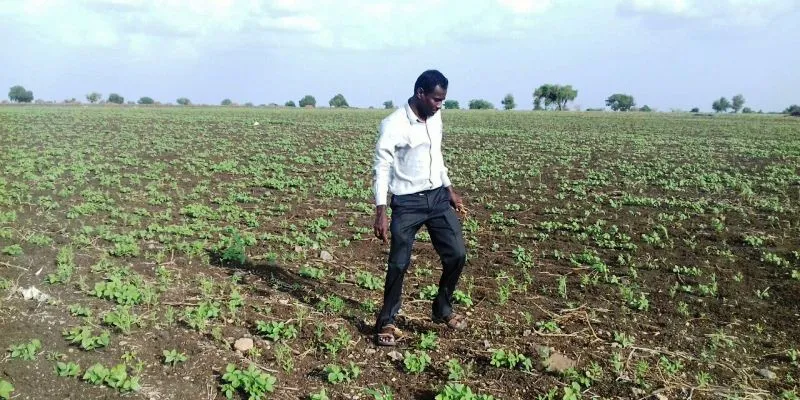
Reaping the benefits
Mahesh grows 30 varieties of crops across the farm. He grows different kinds of pulses, cereals, and vegetables.He has also been growing different varieties of commercial crops such as red grams, wheat, and pigeon pea. While Mahesh works on weekends, he has also hired two ranch hands permanently to take care of the farms.
“My aim is to make my farm 100 percent self-dependent so that nothing is purchased from the market,” says Mahesh.
Mahesh is also of the opinion that most Indian farms are dependent on the market for growing food. Due to this high dependency, expenses increase day by day which further leaves farmers debt ridden.
He is also aware of the problem of water scarcity in villages. To solve this problem, he has dug a small pond for rain water harvesting.
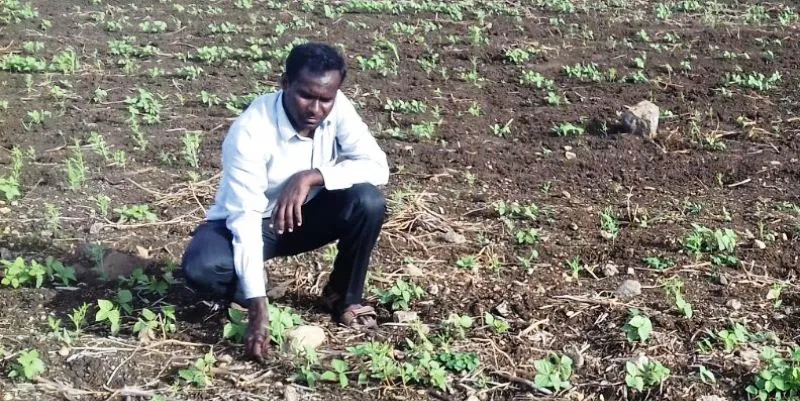
Old is Gold
Mahesh is trying hard to bring back old farming practices to ensure a sustainable growth. He advocates complete cow-based agriculture. “Initially, I didn’t have sufficient number of cows to feed the soil with farming inputs; therefore, I bought most of the inputs from Bengaluru-located ‘Desi Cows for Better India’. However, now I have enough desi cows to take care of farming input requirements for the entire farm. One good thing—in our village we only have desi cows of khillari, deoni, and jawari breeds,” he adds.
As he started his journey back to his roots, he started getting support from others. “My father had stored some seeds. A few of my family members also helped me obtainseeds. Later, as I started full-fledged farming, I started buying seeds from Mr. Raghuvanshi.” Mr. Raghuvanshi is a farmer and Mahesh speaks highly of him. He is also known as the ‘Seed Man of India’ “He is an inspiration. He also motivates other farmers. He wants them to grow the best variety of seeds to prosper. With every purchase, he gives heirloom vegetable seeds for free. These seeds need to be grown, multiplied and shared with other farmers. I am doing it in a small way but will scale it up soon,” shares Mahesh.
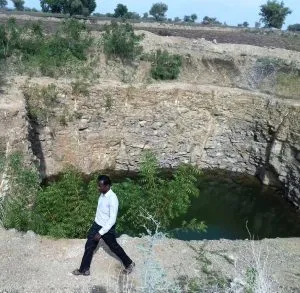
Mahesh believes that farmers should be independent to sell their farm inputs. According to him, farmers selling their produce in local mandis and markets is a wrong practice and advocates the selling of the farm produce to the end user for maximum benefits. As for him, word of mouth publicity is garnering profits.
The road ahead
Mahesh gives the credit of his success to his family members, friends and colleagues who supported him in his initiative. For the same reason, he has been managing his full-time job and his part-time passion. He also credits the agricultural officers for their guidance.
peaking about his future plans, Mahesh says“My ultimate goal is to make certain that all farmers resume natural farming practices as soon as possible. I want my district Gulbarga to be absolutely chemical-free and self-sustainable by 2025.”
Mahesh’s initiative has been motivating other farmers to push the boundaries and go back to the good old farming practices.


